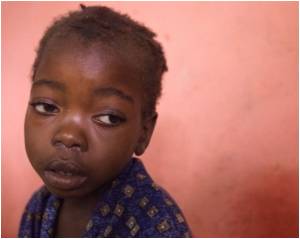Over two million Somalis could be facing starvation, but aid agencies seem helpless in the face of stubborn resistance by Islamic militants.

The present situation is blamed on lack of rains as also on the failure of governments to adequately finance agriculture and irrigation schemes.
Somalia is hardest hit - at least six out of 10,000 children are dying every day in Somalia, the UN says.
World Food Programme (WFP) officials said they were considering food drops from aircraft into some areas controlled by the al Qaeda-linked al Shabaab, which imposed a ban on food aid in 2010.
"There are 2.2 million people yet to be reached. It is the most dangerous environment we are working in in the world. But people are dying. It's not about politics, it's about saving lives now," Josette Sheeran, WFP's executive director, told agency staff and reporters in northeastern Kenya.
WFP was among several groups ordered out of rebel-held areas last year, but they were now preparing to return.
Advertisement
Aid groups also face landmines in the border areas where al Shabaab clashed with Kenyan and Ethiopian forces earlier this year, Chapman said.
After walking for days through the scorching scrub, often without food and water, up to 1,500 people arrive daily at eastern Kenya's Dadaab camp, the world's biggest refugee camp. With Sheeran was France's Agriculture Minister Bruno Le Maire, who will report to a U.N. emergency meeting in Rome on Monday.
More than a quarter of the children in the drought-prone area are malnourished and a third of adults receiving food handouts, U.N. data showed.
Al Shabaab have accused the U.N. of exaggerating the gravity of the humanitarian crisis and denounced the declaration of famine in two parts of Somalia as political.
Since its last national government collapsed in 1991, Somalia has become the classic failed state.
The militant group, al-Shabab which has links to al-Qaeda, controls many southern and central areas, includes those where a famine has been declared.
The UN-backed government is only in charge of parts of the capital, Mogadishu.
It is very difficult to get aid to Somalia - even before al-Shabab banned aid groups, some food deliveries were looted by gunmen and others were held for ransom by pirates.
Some aid agencies have been putting out appeals warning of a crisis for several months but the effort has only really been ramped up recently, when TV pictures of starving children motivate more people - and governments - to put their hands in their pockets.
The economic crisis may have left many donors and individuals feeling less generous than they would normally be.
Others may question whether their aid will actually reach those in need - rather than al-Shabab or other gunmen.
This was a major problem in the 1992-3 drought in Somalia.
Most of the affected people in Somalia, Kenya and Ethiopia are pastoralists and nomads.
Livestock is key to their livelihoods, but many of their animals - including drought-resistant camels - have died. This means they will take many years of good rains to recover.
In Somalia's famine-hit areas, rains are only due in November. The people who have fled the famine are unlikely to return any time soon to plant crops.
The Famine Early Warning Systems Network predicts that the whole of southern Somalia will experience a famine in the next month or two.
Cycles of drought and flooding have become increasing frequent across the Horn of Africa and east Africa, due largely to global warming, agency reports say.
Source-Medindia












